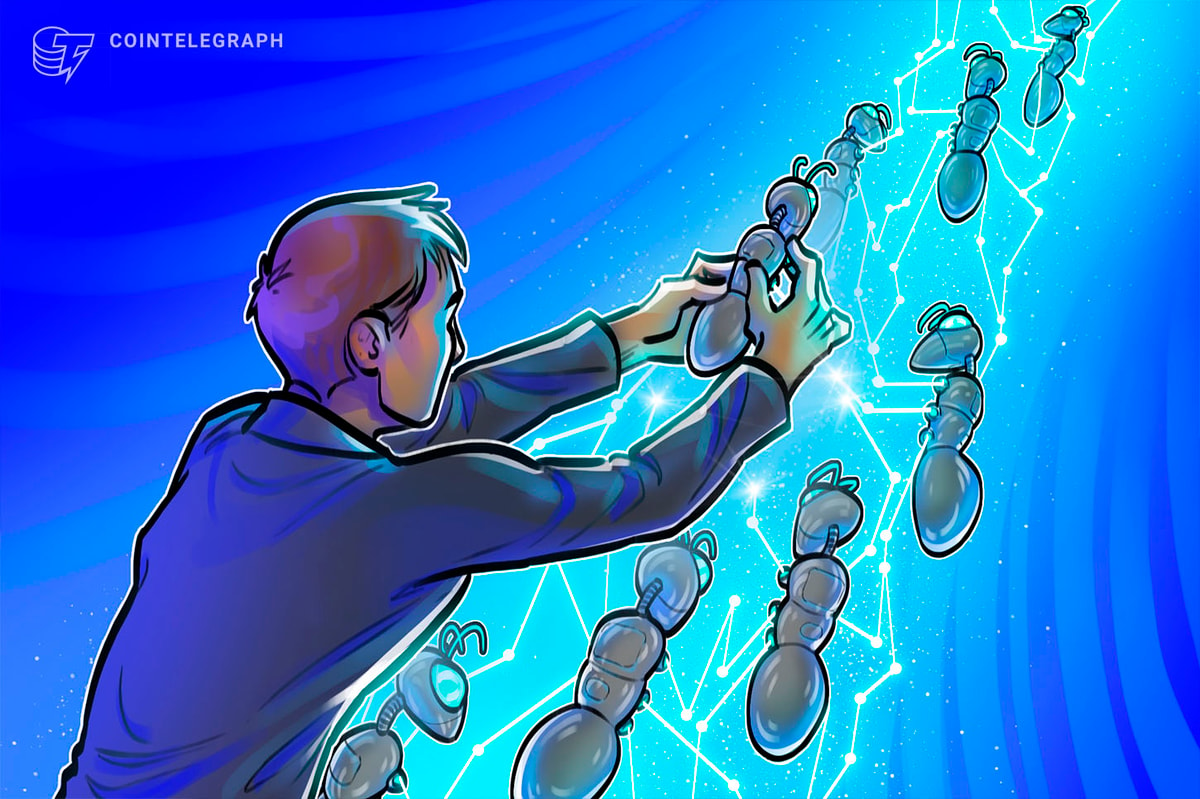
- Allegations claim over 90% of Solana validators are heavily subsidized by the Solana Foundation and Alameda Research, raising concerns about network autonomy.
- Solana co-founder Anatoly Yakovenko responds, emphasizing the importance of validators’ votes, not stake, in network security.
In recent discussions, serious concerns have arisen regarding the extent of financial support the Solana Foundation and Alameda Research provided Solana validators. A user on X known as arixon.eth has voiced these concerns, suggesting that most Solana validators depend on substantial financial backing from these entities.
Did you know that 90% of validators on Solana are subsidised by Alameda and the Solana Foundation?
I did some analysis on the subject and the data shocked me.
— arixon.eth
(@arixoneth) October 3, 2023
The implications of such financial support for the long-term stability and decentralization of Solana’s blockchain network have ignited a heated debate. Solana’s co-founder, Anatoly Yakovenko, has responded to these claims, stressing the importance of validators’ voting behavior in network security, regardless of their stake.
The primary issue at the heart of the matter revolves around the financial subsidization received by Solana validators. The claim by arixon.eth that over 90% of validators are heavily subsidized has attracted widespread attention and scrutiny within the cryptocurrency community. The concern is that such substantial financial support may jeopardize the network’s decentralization and self-governance. This is because the interests of the Solana Foundation and Alameda Research could influence validators.
Data Highlights the Situation
The statistical data presented in these allegations is both noteworthy and impactful. Out of the total count of 1,997 Solana validators at the time of writing, an astounding 1,818 validators had received delegations from the Solana Foundation and Alameda Research. What makes this even more significant is the volume of SOL tokens delegated, with 73 million SOL originating from the Solana Foundation and an additional 33 million SOL from Alameda Research. These figures underscore the extent of the subsidization in question.
Arixon.eth concluded that these revelations artificially inflated the Solana network’s node count and validator numbers due to the generous incentivization these two centralized entities provided. In essence, validators could participate in the Solana network primarily because they receive financial support from the Solana Foundation and Alameda Research.
Potential Impact on Network Independence
The implications of these allegations extend beyond mere concerns about decentralization. Arixon.eth suggests that such a subsidy arrangement could enable the Solana Foundation to exert influence over the decision-making processes of node operators. Suppose validators are financially dependent on these entities. In that case, they may be more inclined to align their actions with the interests of the Solana Foundation and Alameda Research, potentially compromising the network’s autonomy and security.
Furthermore, the fact that many node operators have received zero delegations from typical SOL token holders raises questions about the extent of the broader community’s involvement and influence within the Solana network.
Co-Founder Responds: It’s About Voting Behavior, Not Stakes
Solana co-founder Anatoly Yakovenko has addressed these allegations directly. Yakovenko’s concise response emphasizes the critical nature of validators’ voting behavior in securing the network. He argues that the number of validators and the amount of stake they hold are not as vital as the votes they cast.
2k nodes is accurate. The state is secured by those 2k nodes and their vote keys, not by the stake.
— toly
(@aeyakovenko) October 3, 2023
In the Solana network, validators collectively approve valid blocks through their voting actions. When a node operator withdraws SOL tokens from staking, their voting power diminishes. This mechanism ensures that, regardless of the disparity in stakes held by validators, they all play a fundamental role in maintaining network security and decentralization.
Yakovenko’s response indirectly acknowledges the existence of subsidization but suggests that it does not undermine the network’s integrity as long as validators maintain their independence when casting votes.
The allegations surrounding the substantial subsidization of Solana validators and the subsequent response from the co-founder have ignited a significant and ongoing debate within the cryptocurrency community. As Solana continues establishing itself as a formidable blockchain platform competing with Ethereum, questions regarding its decentralization and security are poised to remain at the forefront of discussions.
The outcome of this debate could significantly influence the future governance models and subsidy structures of blockchain networks. While providing financial support to validators can incentivize network growth, striking a balance that preserves autonomy and security represents an ongoing challenge.
Best Crypto Exchange for Everyone
- Invest in Solana and over 200+ cryptocurrencies on America’s most trusted crypto exchange.
- Buy Solana easily and with low fees via PayPal and credit card.
- Enjoy super-low trading fees and access to more than 400 trading pairs.
- Coinbase is regulated by the SEC and FINRA in the USA, and by CySEC and FCA in Europe.

 100,000,000 Users
100,000,000 Users
Crypto News Flash does not endorse and is not responsible for or liable for any content, accuracy, quality, advertising, products, or other materials on this page. Readers should do their own research before taking any actions related to cryptocurrencies. Crypto News Flash is not responsible, directly or indirectly, for any damage or loss caused or alleged to be caused by or in connection with the use of or reliance on any content, goods, or services mentioned.
Read More: www.crypto-news-flash.com












 Bitcoin
Bitcoin  Ethereum
Ethereum  Tether
Tether  XRP
XRP  Solana
Solana  USDC
USDC  Dogecoin
Dogecoin  TRON
TRON  Cardano
Cardano  Lido Staked Ether
Lido Staked Ether  Wrapped Bitcoin
Wrapped Bitcoin  Hyperliquid
Hyperliquid  Sui
Sui  Wrapped stETH
Wrapped stETH  Chainlink
Chainlink  Avalanche
Avalanche  Stellar
Stellar  LEO Token
LEO Token  Bitcoin Cash
Bitcoin Cash  Toncoin
Toncoin  Shiba Inu
Shiba Inu  Hedera
Hedera  WETH
WETH  USDS
USDS  Litecoin
Litecoin  Wrapped eETH
Wrapped eETH  Polkadot
Polkadot  Monero
Monero  Binance Bridged USDT (BNB Smart Chain)
Binance Bridged USDT (BNB Smart Chain)  Ethena USDe
Ethena USDe  Bitget Token
Bitget Token  Pepe
Pepe  Pi Network
Pi Network  Coinbase Wrapped BTC
Coinbase Wrapped BTC  WhiteBIT Coin
WhiteBIT Coin  Aave
Aave  Uniswap
Uniswap  Dai
Dai  Bittensor
Bittensor  Ethena Staked USDe
Ethena Staked USDe  Aptos
Aptos  NEAR Protocol
NEAR Protocol  Cronos
Cronos  OKB
OKB  Jito Staked SOL
Jito Staked SOL  BlackRock USD Institutional Digital Liquidity Fund
BlackRock USD Institutional Digital Liquidity Fund  Internet Computer
Internet Computer  Ondo
Ondo  Ethereum Classic
Ethereum Classic